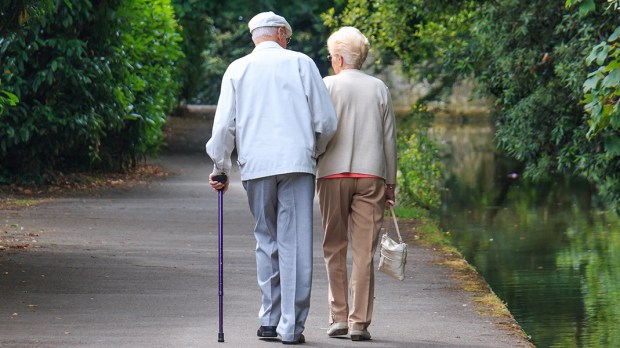Caregiving can be exhausting and mentally draining. While the responsibility for looking after others raises a lot of practical issues, it also increases stress levels, too — after all, caring for loved ones can impact our careers and finances, and leave us short of time to care for other members of our families. Yet as actor Rob Lowe, who cared for his own ailing mother, pointed out in a piece he wrote on the topic, there is great satisfaction in being able to be with loved ones in their vulnerability.
There is actually another benefit of being a caregiver that has been overlooked until recently, too. In a recent study published by the American Journal of Epidemiology, caregivers were found to have a higher life expectancy than non-caregivers. In fact, figures revealed that those caring for their loved ones had 18% less chance of dying in the following six-year period than non-caregivers.
You might be wondering how the stresses and strains of caring for others can add years to your life. This was a question that perplexed the author of another study by Lisa Fredman, a Boston University epidemiologist. As the New York Times reported, Fredman was aware of the tolls of caregiving, such as the possibility of increased heart disease and negative effects on the immune system, but in her study of 900 female caregivers, she was surprised to see that these women had impressive memory recall, more physical strength in their grip, a faster walking pace, and could rise from a chair more easily. Indeed, the more intense the caregiving, the more physical and mental strength the caregiver had.
These studies shine a very different light on what is often referred to as the “caregiver burden,” as gerontologists show us there is a certain “caregiver gain” to caregiving. Of course, any study needs to take into account that those who care for their loved ones often do so because they have the physical and mental strength in the first place, which means it stands to reason they would be more fit both physically and mentally. Nevertheless, caregiving seems to affect us positively.
“Caregiving often requires complex thought. Caregivers monitor medications, they juggle schedules, they may take over financial responsibilities,” explains Dr. Bertrand, a co-author of the study cited above, suggesting that by focusing on others, our mind and body respond in a positive way.
It’s also important to note that while these studies offer a positive slant on caregiving, we must always bear in mind that those who are looking after the sick, disabled and elderly need a lot of support, too.

Read more:
Rob Lowe opens up about the overwhelming stress of being a caregiver

Read more:
9 Things all caregivers should do … for themselves

